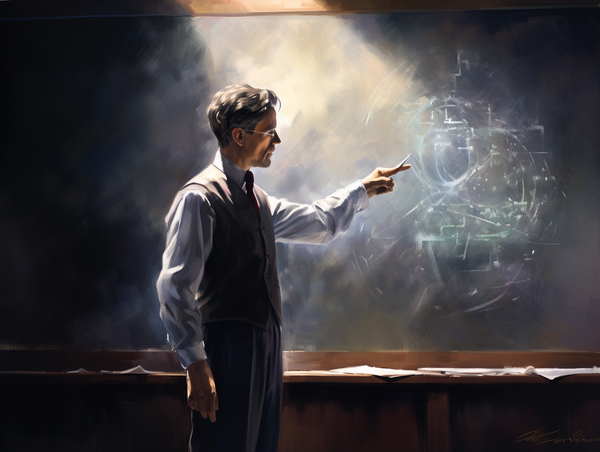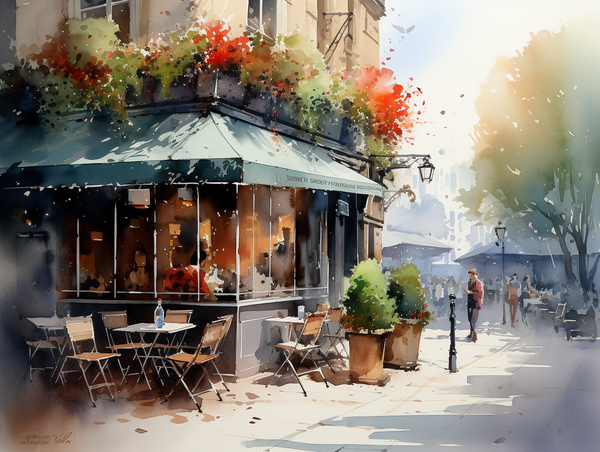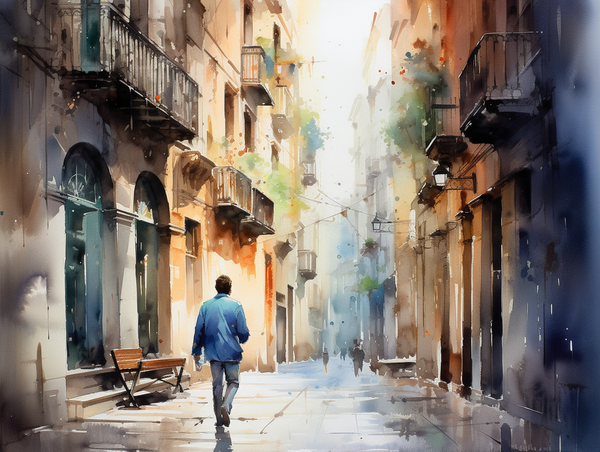Dancing with the Hours
Here's to the slipperiness of seconds. To the way moments expand and contract defying our attempts to hold them still.

We rarely experience time as it actually flows. It is as if our consciousness possesses a peculiar elasticity, stretching minutes into eternities or compressing decades into fleeting whispers. We reach for it, attempt to measure it, divide it into neat segments of seconds and minutes and hours—yet somehow it defies these rigid constraints, expanding and contracting according to laws that have nothing to do with clocks.
Consider the fragments of time that punctuate our memory landscape. For me: the eternal summer afternoons of childhood that somehow fit between lunch and dinner, the blink-brief years of my twenties, and that one perfect autumn day in 1988 with my father out fishing in a lake. These moments are insignificant when viewed clinically, yet they are profound in their emotional residence. Non linear, yet temporal. This temporal elasticity isn't a failure of perception but rather a profound truth about our existence.
We construct elaborate systems to measure and constrain this existence. Yet when pressed to explain it's relationship with time's passage—why some moments linger while others evaporate, why nostalgia stretches backward while anxiety reaches forward—we often resort to phrases like "time flies" or "it dragged on forever."
The universe operates on multiple temporal scales simultaneously. Geological time unfolds over millions of years, transforming mountains into sand grains. Biological time pulses through our cells, replacing every atom in our bodies every seven years. Psychological time warps around emotion—stretching interminably during grief or boredom, compressing to nothing in moments of joy or flow.
We are taught from childhood to "use time wisely," as if it were a currency to be spent or saved. We are told to optimise and prioritise, squeezing maximum productivity from each minute. We are celebrated if we do. Books get written. Management courses get taught. Yet when we reflect on our most meaningful moments, they rarely coincide with our most efficient ones. The times we remember most vividly are those when we were fully present—not racing toward some future goal but deeply immersed in the now.
Could it thereby be possible that time is not really an adversary to be conquered, but rather a medium to inhabit? If you ask the ancient Greeks they might have tried to explain its likeness with the concept of "kairos" - the right, critical, or opportune moment. That brief window where time's quality matters more than its quantity.
Consider how differently time flows in dreams—where years can pass in a single night's sleep, where we can visit the past or future, where chronology dissolves entirely. Perhaps our waking experience of time is equally subjective, equally malleable, equally strange. The wrinkles forming at the corners of my eyes tell one story. My digital photographs from ten years ago however, tell another one, where the wrinkles are not present but the memories associated have become far more distant.
Time doesn't merely pass—it accumulates, transforms, circles back. We carry all our past selves within us. The child I was still exists somewhere in the adult I've become. The future versions of me already exert their influence on my present choices. Linear time is a convenient fiction. Reality is far more interesting.
Ask yourself if you can come up with one moment which you fully lived. Based on your answer, perhaps an alternative option lies not in obsessively managing time but in surrendering to its mysteries in those moments which we try our hardest to grasp but that slip away the quickest.
Why?
Because irrespective of whether we"let go", "optimise" or "manage" time, the sun will continue to rise and set, seasons will continue to change and birthdays will keep accumulating. But within this inexorable flow lies infinite room for subjective experience—for moments that expand into eternities, for memories that collapse decades into seconds, for now. When the boundaries between the observer and observed dissolve, time becomes a space rather than a line—something to inhabit rather than travel through.
Henri Bergson distinguished between "clock time" and "lived time"—between the mechanical measurement of duration and the subjective experience of it. He observed that our consciousness doesn't experience time as evenly divided segments but as a continuous, heterogeneous flow where certain moments expand while others contract.
So here is to the moments that mysteriously become eternal. To the unscheduled instances that reshape memories. To the wisdom of sometimes letting the clock melt, allowing ourselves to be surprised by temporal experiences we never thought to seek.
Here is to dancing with the hours.
About Me:
I write 'cos words are fun. More about me here. Follow @hackrlife on X




